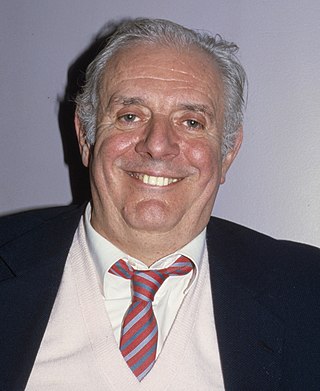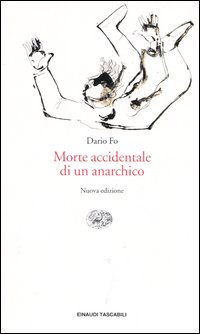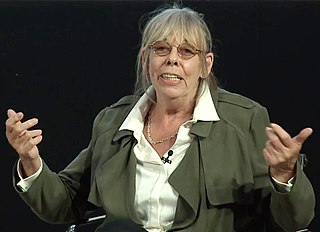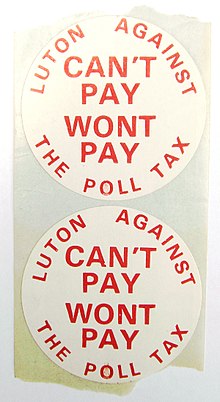
Satire is a genre of the visual, literary, and performing arts, usually in the form of fiction and less frequently non-fiction, in which vices, follies, abuses, and shortcomings are held up to ridicule, often with the intent of exposing or shaming the perceived flaws of individuals, corporations, government, or society itself into improvement. Although satire is usually meant to be humorous, its greater purpose is often constructive social criticism, using wit to draw attention to both particular and wider issues in society.

Roberto Remigio Benigni is an Italian actor, comedian, screenwriter and director. He gained international recognition for writing, directing and starring in the Holocaust comedy-drama film Life Is Beautiful (1997), for which he received the Academy Awards for Best Actor and Best International Feature Film. Benigni was the first actor to win the Best Actor Academy Award for a non–English language performance.

Enrico Berlinguer was an Italian politician. Considered the most popular leader of the Italian Communist Party (PCI), he led the PCI as the national secretary from 1972 until his death during a tense period in Italy's history, which was marked by the Years of Lead and social conflicts, such as the Hot Autumn of 1969–1970. Berlinguer was born into a middle-class family; his father was a socialist who became a deputy and later senator. After leading the party's youth wing in his hometown, he led the PCI's youth wing, the Italian Communist Youth Federation (FGCI), at the national level from 1949 to 1956. In 1968, he was elected to the country's Chamber of Deputies, and he became the leader of the PCI in 1972; he remained a deputy until his death in 1984. Under his leadership, the number of votes for the PCI peaked. The PCI's results in 1976 remain the highest for any Italian left-wing or centre-left party both in terms of votes and vote share, and the party's results in 1984, just after his death, remain the best result for an Italian left-wing party in European elections, and were toppled, in terms of vote share in a lower-turnout election, in the 2014 European Parliament election in Italy.

Dario Luigi Angelo Fo was an Italian playwright, actor, theatre director, stage designer, songwriter, political campaigner for the Italian left wing and the recipient of the 1997 Nobel Prize in Literature. In his time he was "arguably the most widely performed contemporary playwright in world theatre". Much of his dramatic work depends on improvisation and comprises the recovery of "illegitimate" forms of theatre, such as those performed by giullari and, more famously, the ancient Italian style of commedia dell'arte.

Accidental Death of an Anarchist is a play by Italian playwright Dario Fo that premiered in 1970. It has been performed across the world in more than forty countries. The play is based on the 1969 Piazza Fontana bombing and on the death of Giuseppe Pinelli while being interrogated by the police.

Frances J. de Lautour, better known as Frances de la Tour, is an English actress. She is known for her role as Miss Ruth Jones in the television sitcom Rising Damp from 1974 until 1978. She is a Tony Award winner and three-time Olivier Award winner.

Mariangela Caterina Melato, sometimes billed as Maria Angela Melato, was an award-winning Italian film and theatre actress. She is most remembered for her roles in films of director Lina Wertmüller, including The Seduction of Mimi (1972), Love and Anarchy (1973), and Swept Away (1974). In cinema, she also appeared in films of Claude Chabrol, Elio Petri and Vittorio De Sica, and on stage in productions by Dario Fo, Luchino Visconti and Luca Ronconi. Her roles in English-language films include the 1980 science fiction film Flash Gordon.

Gianni Garko, often billed as John Garko and occasionally Gary Hudson, is a Dalmatian Italian actor who found fame as a leading man in 1960s Spaghetti Westerns. He is perhaps best known for his lead role as Sartana, starting with the first official film If You Meet Sartana Pray for Your Death and starring in three sequels as this character, the role played by George Hilton in the third film in the series.

Franca Rame was an Italian theatre actress, playwright and political activist. She was married to Nobel laureate playwright Dario Fo and is the mother of writer Jacopo Fo. Fo dedicated his Nobel Prize to her.

The Half Moon Theatre Company was formed in 1972 in a rented synagogue in Alie Street, Whitechapel, in the London Borough of Tower Hamlets. Half Moon Passage was the name of a nearby alley. The founders, Michael Irving and Maurice Colbourne, and the Artistic Director, Guy Sprung, wanted to create a cheap rehearsal space with living accommodation, inspired by the sixties alternative society.

Drama is the specific mode of fiction represented in performance: a play, opera, mime, ballet, etc., performed in a theatre, or on radio or television. Considered as a genre of poetry in general, the dramatic mode has been contrasted with the epic and the lyrical modes ever since Aristotle's Poetics —the earliest work of dramatic theory.
The Pope and the Witch is a satirical play by Dario Fo, first performed in 1989. It depicts the Pope as a paranoid, drug-addled idiot and the Vatican as corrupt.
Tom Behan was born from Irish parents. He was an academic and writer on Italian history, politics and culture.

Yılmaz Onay was a Turkish author, theatre director and translator.
Several theories of taxation exist in public economics. Governments at all levels need to raise revenue from a variety of sources to finance public-sector expenditures.
The First Miracle of the Infant Jesus is a monologue by Dario Fo, recipient of the 1997 Nobel Prize in Literature.
Mistero buffo is Dario Fo's solo pièce célèbre, performed across Europe, Canada and Latin America from 1969 to 1999. It is recognised as one of the most controversial and popular spectacles in postwar European theatre and its broadcast in Italy prompted the Vatican to denounce it as "the most blasphemous show in the history of television".
The Devil with Boobs is a two-act play by Dario Fo, recipient of the 1997 Nobel Prize in Literature.

The 1997 Nobel Prize in Literature was awarded to the Italian playwright and actor Dario Fo (1926–2016) "who emulates the jesters of the Middle Ages in scourging authority and upholding the dignity of the downtrodden." Fo became the sixth Italian to be selected for the award since Eugenio Montale in 1975 and the first Italian playwright to be chosen since Luigi Pirandello in 1934.

The theatre of Italy originates from the Middle Ages, with its background dating back to the times of the ancient Greek colonies of Magna Graecia, in Southern Italy, the theatre of the Italic peoples and the theatre of ancient Rome. It can therefore be assumed that there were two main lines of which the ancient Italian theatre developed in the Middle Ages. The first, consisting of the dramatization of Catholic liturgies and of which more documentation is retained, and the second, formed by pagan forms of spectacle such as the staging for city festivals, the court preparations of the jesters and the songs of the troubadours.













